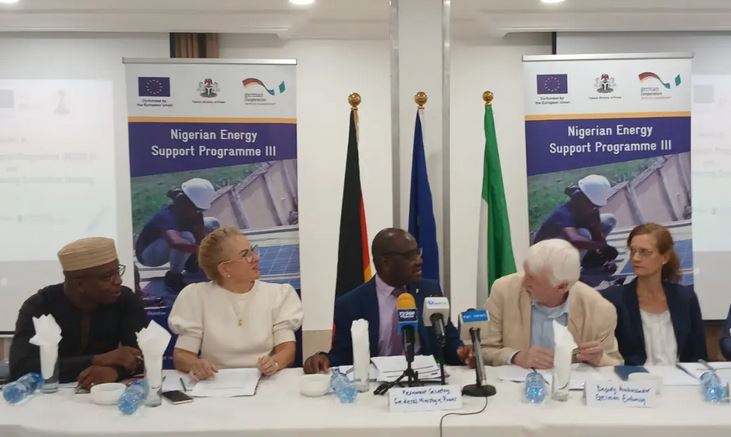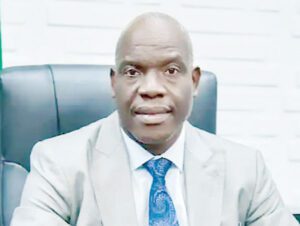
FG secures £17.9m for off-grid electricity initiative with EU, Germany
The Federal Government has secured £17.9 million in funding from the European Union (EU) and the German Government to support its off-grid electricity project.
The initiative, launched under the third phase of the Nigerian Energy Support Programme (NESP), aims to promote investments in renewable energy, energy efficiency, and rural electrification.
The EU stated that the initiative will grant 154,000 people access to electricity and connect 30,000 more to clean cooking gas, with an additional 8 megawatts of renewable energy capacity planned.
Launched in 2013, NESP is a technical assistance program co-funded by the EU and Germany’s Federal Ministry for Economic Cooperation and Development, with implementation by Deutsche Gesellschaft für Internationale Zusammenarbeit in collaboration with Nigeria’s Federal Ministry of Power.
Head of green and digital economy at the EU Delegation to Nigeria and ECOWAS, Inga Stefanowicz, emphasised that a sustainable energy future is a collective responsibility.
“As we launch this phase, 154,000 people will gain new or improved access to electricity, and 30,000 people will benefit from access to clean cooking gas,” she noted.
Stefanowicz highlighted that expanding renewable in Nigeria’s energy mix aligns with the EU’s vision of a sustainable and reliable power supply.
German deputy Ambassador, Johannes Lehne, reiterated Germany’s commitment to Nigeria’s energy transition goals.
He stated, “Renewable energy investments are vital to diversifying Nigeria’s energy mix and decarbonizing critical sectors outlined in the Energy Transition Plan.”
Germany’s Federal Ministry for Economic Cooperation and Development contributed €8.9 million, with the EU recently adding another €9 million, raising NESP’s Phase III budget to €17.9 million.
Head of Programme at NESP, Duke Benjamin, highlighted the project’s focus on providing electricity to rural communities not connected to the national grid.
“Phase three of the Nigerian Energy Support Programme is because of the successes recorded in Phases One and Two. Phases one and two have increased access to electricity supply in rural areas in Nigeria.”
Mahmuda Mamman, the Permanent Secretary of the Ministry of Power, highlighted that the initiative is part of ongoing efforts to provide electricity to the approximately 100 million Nigerians without access.
He emphasised the importance of renewable energy in meeting the electricity needs of unserved rural communities.
Nigeria, Africa’s most populous nation, faces perennial power shortages that have contributed to years of weak economic growth.
In 2024 alone, Nigeria’s national grid has experienced at least eight collapses, and with a population exceeding 250 million, the country generates only 5,000 megawatts of electricity.
Its electricity sector faces a myriad of problems, including a failing grid, gas shortages, high debt and vandalism. The country has 12,500 megawatts of installed capacity, but produces only about a quarter of that, leaving many Nigerians reliant on expensive diesel-powered generators.




